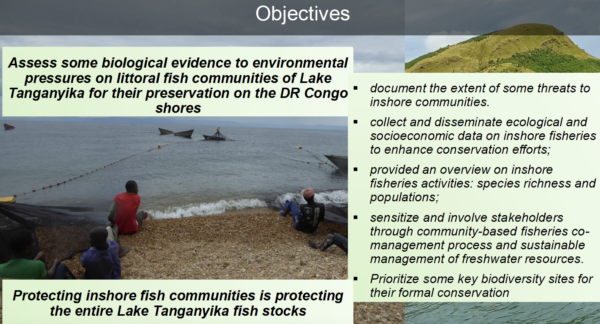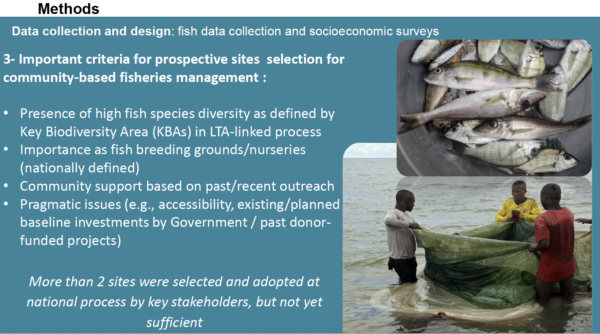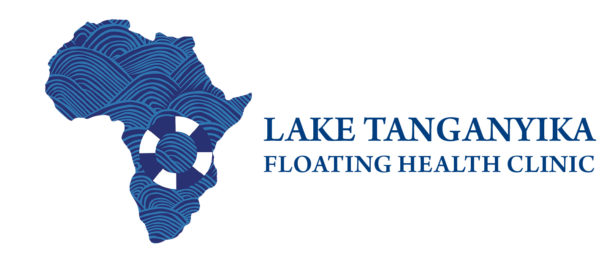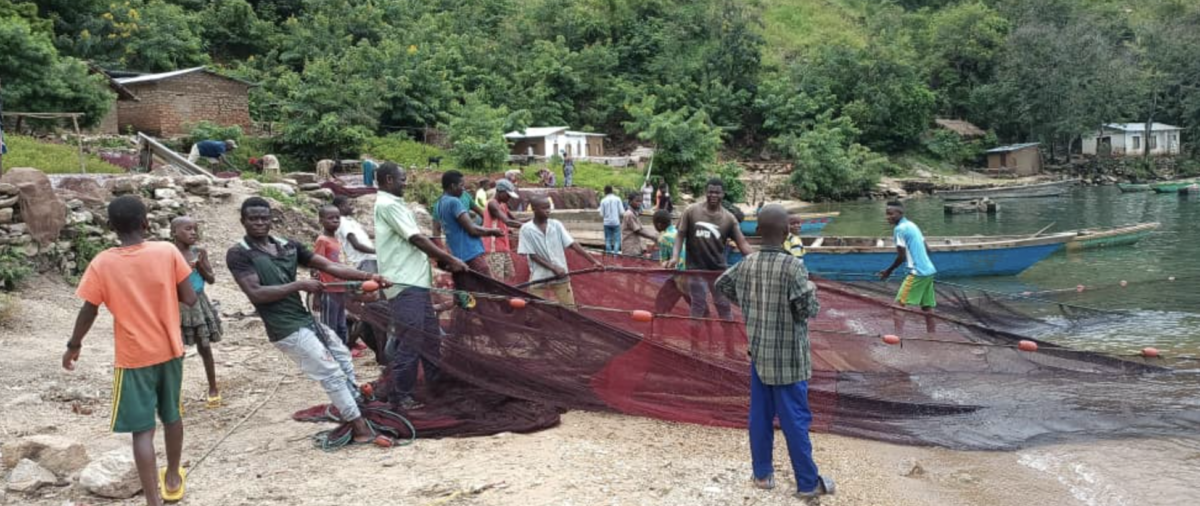Dr. Amy Lehman, her co-PI, Dr. Deo Mushagalusa, and the team from the Lake Tanganyika Floating Health Clinic (LTFHC), recently shared mid-year findings of their data collection and survey project in the Lake Tanganyika and Ruzizi River basin as featured speakers/poster presenters at the Species in Ancient Lakes Conference (SIAL9) held in Kigoma, Tanzania in July. The conference was attended by over 80 researchers, representatives from the Lake Tanganyika Authority and officials from multiple fishery programs from the region. As the largest of the Rift Valley lakes, Lake Tanganyika shares shorelines with the Democratic Republic of Congo, Burundi, Tanzania, and Zambia and has the largest inland fishery in Africa that supports more than 12 million people with direct employment and is a major source of protein nutrition.

With issues including erosion, water pollution and unsustainable fisheries threatening the lake, Dr Lehman’s team, in partnership with Dr. Deo Mushagalusa, have been collecting accurate fish biodiversity data along the Democratic Republic of Congo’s lakeshore, assessing the health of Lake Tanganyika fish stocks that are so crucial to the ecosystem and livelihoods of the region. LTFHC is a key contributor to basin-wide initiatives and currently has the only data collection and valuation of fish biodiversity along the Congolese portion of the lake shoreline.

The JRS-sponsored survey of fish biodiversity identified 350 Cichlidae species to be 98% endemic and are particularly vulnerable to heavy fishing and are increasingly threatened with population decline. This baseline of data will help paint a picture of the profound impact of climate related changes, shoreline fishing practices and the clash between health burdens and the livelihoods of 12 million people on the fisheries along the basin.
Strategic actions for the future include establishing standards of acceptable practices for fisheries including a review of fishery licensing procedures; building capacity to implement enforcement of fishery regulations; increasing community awareness and involvement in fishery management; and protecting critical lakeshore habitats.
Read more of JRS grantee, the Lake Tanganyika Floating Health Clinic here (LTFHC)


